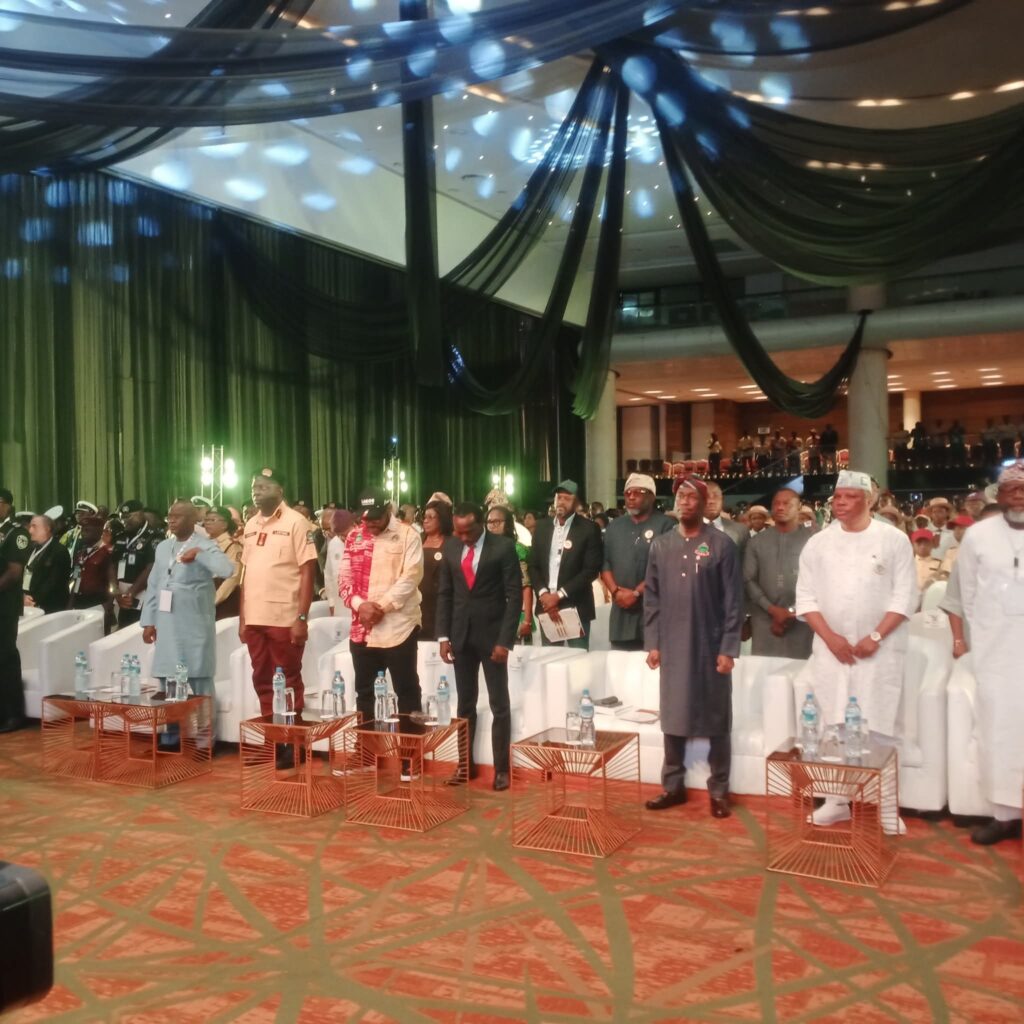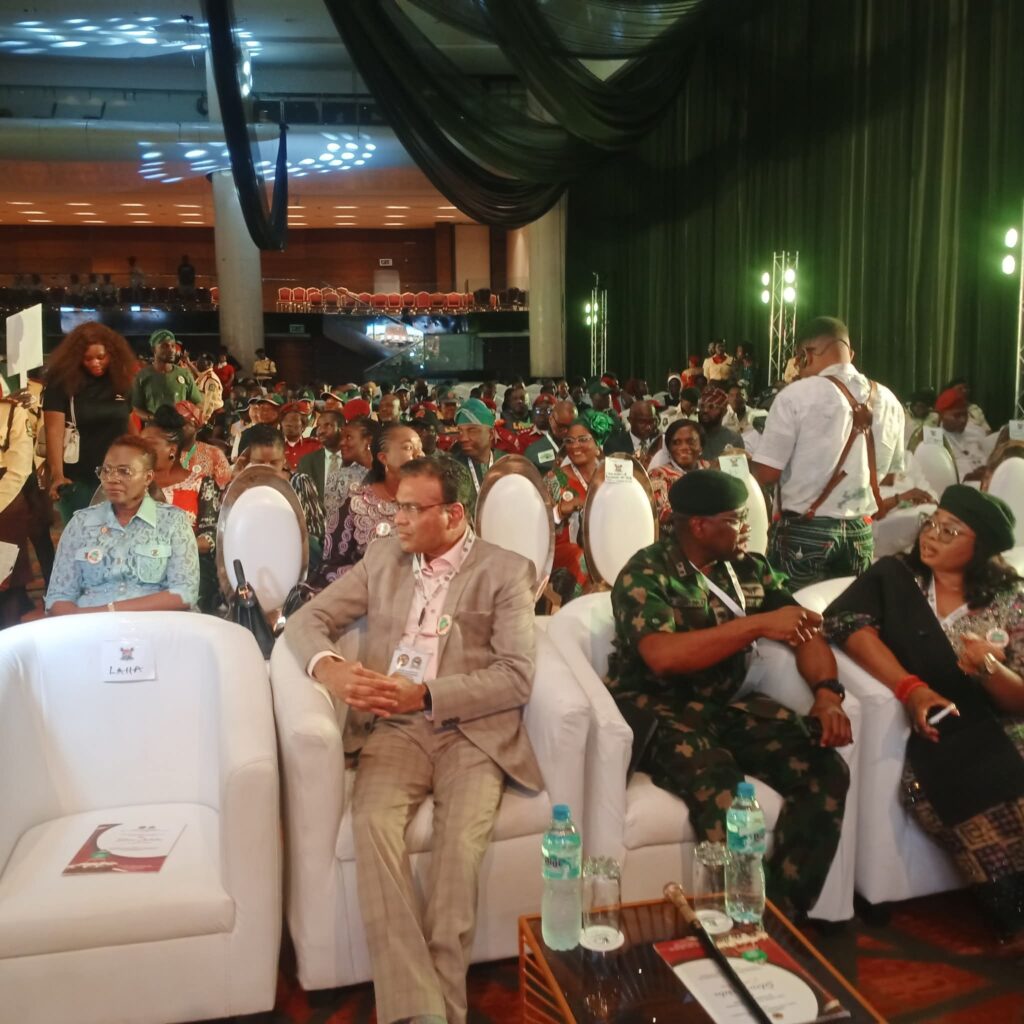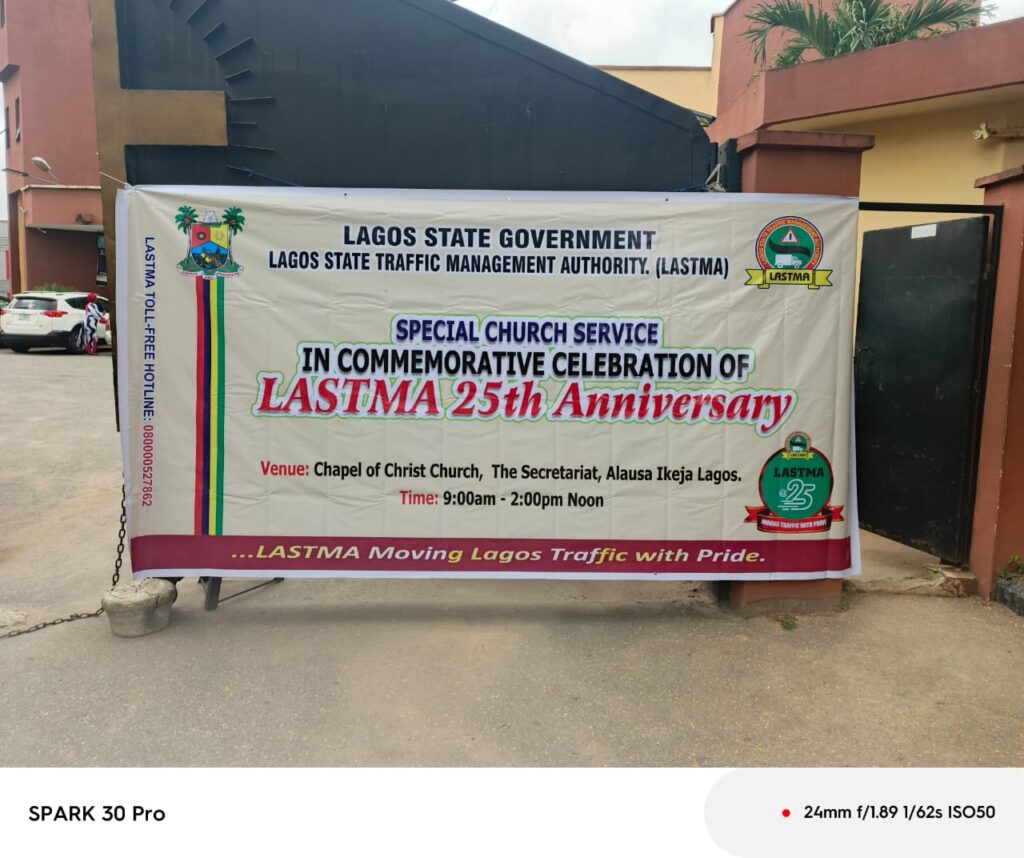By Abayomi Elias



The Lagos State Traffic Management Authority (LASTMA) in commemoration of its 25 years anniversary of making impacts in Lagos, honoured the visionary beginning and progress that had followed its enduring and collective resolve to building a megacity which works for all its inhabitants.
Newsconnect reports that under the theme of its second conference dubbed “Enhancing Traffic Efficiency and Safety on Lagos Roads: Challenges, Opportunities and Innovations,” gave account of its impact and possible ways to address the surmountable challenges identified over time.

The Governor of Lagos State His Excellency Babajide Olusola Sanwo-Olu who was ably represented by his deputy Dr Obafemi Hamzat at LASTMA’s second conference among other things in his keynote speech, said Asiwaju Bola Ahmed Tinubu in 1999 as Governor inherited a city plagued by chaotic traffic congestion, incessant road accidents, and a transportation system in disarray.
Recognizing that the lifeblood of Lagos—its people and commerce—was being strangled by traffic gridlock, he conceived the Lagos State Traffic Management Authority (LASTMA) as a bold solution to restore order, safety, and efficiency on our roads.”

He said it was with this vision that LASTMA was established on July 15, 2000, to address the perennial traffic jams that made life difficult for Lagosians, to reduce road accidents, and to promote a culture of discipline and respect on our streets.
“The goal was clear: to ensure free flow of traffic, save valuable man-hours lost in congestion, and improve the quality of life in our fast-growing metropolis.
“In those early years, the agency confronted infrastructural deficits, limited technology, and the daunting task of changing entrenched road user behaviours. Yet, through unwavering dedication, innovative reforms, and strategic partnerships, LASTMA has overcome these obstacles. From the pioneering leadership of Engineer Adegboyega Coker to the current stewardship of General Manager Olalekan Bakare-Oki the agency has evolved into a model institution admired nationwide and beyond.

“Over the past twenty-five years, LASTMA has transformed from a basic traffic control unit into a sophisticated mobility management agency. Where officers once depended solely on whistles and hand signals, they now operate with access to cutting-edge technology, including real-time traffic monitoring systems, automated number plate recognition, and digital communication platforms.
“The agency’s scope has expanded far beyond simple intersection management to encompass comprehensive traffic engineering, intelligent transportation systems, and strategic urban mobility planning.
“Today, LASTMA boasts over 4,000 well-trained officers deployed strategically across Lagos to ensure smooth traffic flow, emergency response, and law enforcement. The agency has embraced digital transformation, implementing real-time traffic surveillance, Automated Number Plate Recognition (ANPR), and a fully digitized command center, significantly enhancing operational efficiency and transparency.
“Capacity building has been a cornerstone, with officers receiving both local and international training in traffic engineering, emergency response, and road safety. Public enlightenment campaigns like “Drive Safely, Stay Alive” have fostered improved road user behaviour and awareness. Collaboration with key agencies such as the FRSC, LASEMA, and the Nigeria Police has strengthened emergency responses and enforcement.
“The infrastructure expansion of LASTMA—including additional zonal offices, more operational vehicles, and a toll-free helpline—has significantly increased the agency’s visibility and effectiveness on the ground by enabling faster response times and wider coverage across Lagos. This enhanced physical presence is complemented by the Lagos Traffic Radio 96.1FM, which serves as a critical communication platform that extends LASTMA’s reach beyond physical deployment.
“Lagos Traffic Radio, established in 2012, provides real-time traffic updates every ten minutes, broadcasts safety advisories”. He said.
The Special Adviser to Lagos State Governor on Transportation Mr Sola Giwa at the conference talked about issues the agency must confront head-on. He said the challenges include:
• Inadequate road capacity in the face of urban population growth.
• Driver indiscipline, which remains a key trigger of accidents and congestion.
• Inconsistent right-of-way discipline among commercial transport operators.
• And perhaps most concerning, public apathy or hostility towards uniformed traffic officers.
“These are structural, behavioral, and systemic challenges. But they are not insurmountable”. He said
He said opportunities and ongoing interventions under the forward-looking leadership of Governor Babajide Sanwo-Olu include;
“The Blue Line Rail is operational, and the Red Line Rail is nearing completion, offering a credible shift from road to rail.
“We’ve commissioned 21 new ferry routes under the Lagos State Waterways Authority (LASWA), contributing to intermodal decongestion.
“Through LAMATA, we have modernized BRT corridors, improved first-and lastmile buses, and integrated tap-in/tap-out systems for transit accountability.
“We are currently scaling up intelligent traffic systems (ITS), synchronised traffic lights, and camera-based enforcement across critical junctions.
“In terms of human capital, our reforms at LASTMA include improved training modules, better welfare packages, and a renewed focus on public relations and conflict deescalation”. He said
